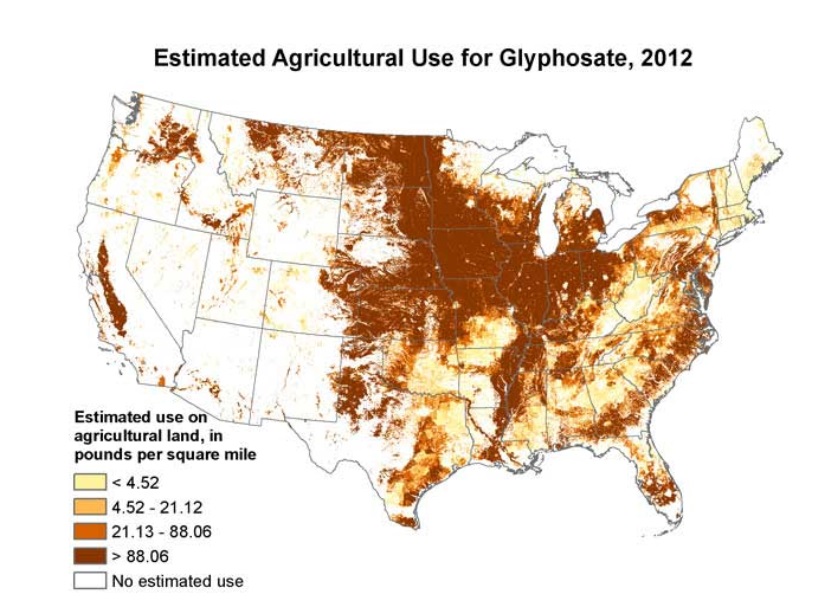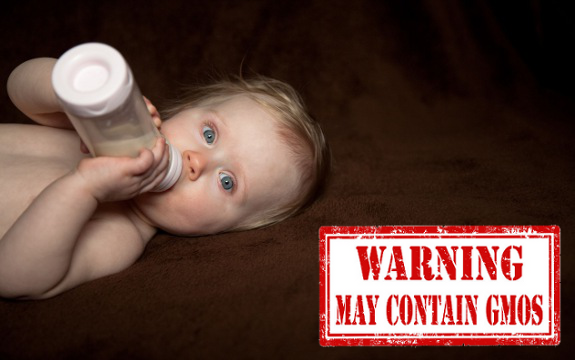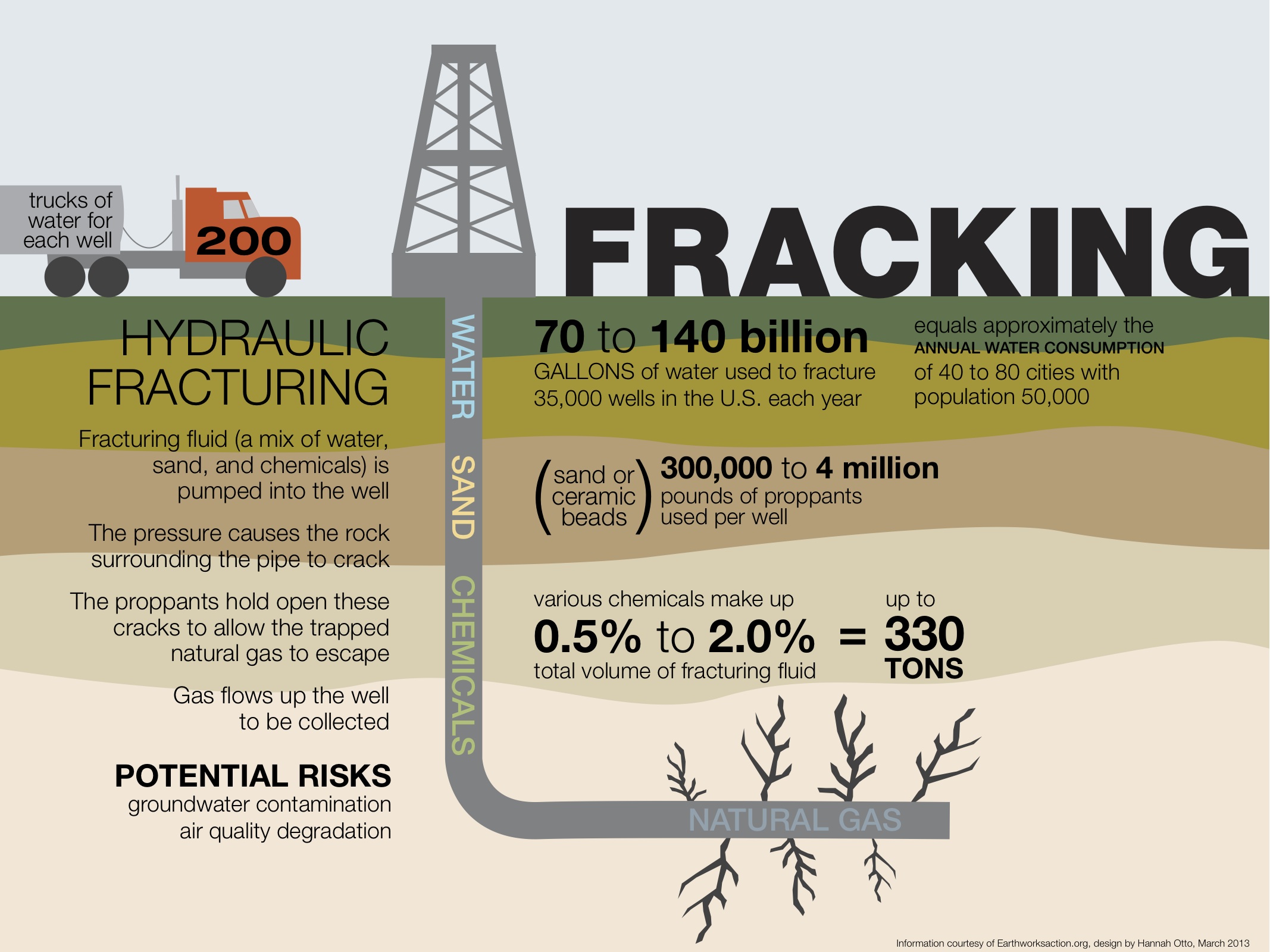Plants are one of the last bulwarks against climate change. They feed on carbon dioxide, growing faster and absorbing more of the greenhouse gas as humans produce it. But a new study finds that limited nutrients may keep plants from growing as fast as scientists thought, leading to more global warming than some climate models had predicted by 2100. Plants …
Glyphosate Is Spreading Like A Cancer Across The U.S. – Mary Ellen Kustin
American growers sprayed 280 million pounds of glyphosate on their crops in 2012, according to U.S. Geological Survey data. That amounts to nearly a pound of glyphosate for every person in the country. The use of glyphosate on farmland has skyrocketed since the mid-1990s, when biotech companies introduced genetically engineered crop varieties (often called GMOs) that can withstand being blasted with …
Modern Life Is a Frightening Experiment in How Much Exposure We Can Take from Toxic Chemicals – Allegra Kirkland
Back in 1974, the agricultural multinational Monsanto developed a class of herbicides using glyphosate as the key ingredient. By the 1990s, the company had created corn, soy and cotton seeds genetically altered to resist glyphosate herbicides, meaning farmers could kill weeds without fearing for the health of their crops. Today, Monsanto’s Roundup is the most widely used [3] weed-killer in the world. One …
Scientists warn of hormone impacts from benzene, xylene, other common solvents – Brian Bienkowski
Four chemicals present both inside and outside homes might disrupt our endocrine systems at levels considered safe by the U.S. Environmental Protection Agency, according to an analysis released today. The chemicals – benzene, toluene, ethylbenzene and xylene – are ubiquitous: in the air outside and in many products inside homes and businesses. They have been linked to reproductive, respiratory and heart …
Jean Nick – 14 Unfortunate Green-Cleaning Mistakes
#1. Believing the word “natural” on a label. Unfortunately, the word “natural” (or “green” or “ecofriendly”) on a label or cleaning recipe is no guarantee a product is safe or even natural. If the ingredients aren’t clearly listed on the label, check out the brand’s website. If a cleaning product manufacturer still isn’t totally transparent about what’s in the bottle …
Toxic Weed Killer Glyphosate Found in Breast Milk, Infant Formula
The widely-used herbicide glyphosate, now classified as probably carcinogenic to humans by the World Health Organization (WHO), has been found in a number of items, including honey, breast milk and infant formula, according to media reports. “When chemical agriculture blankets millions of acres of genetically engineered corn and soybean fields with hundreds of millions of pounds of glyphosate, it’s not a surprise babies are now consuming …
Insufficient Data and Loose Regulations Worsen Fracking’s Impact, Studies Find
A slew of studies released this week, each examining different aspects of the fossil fuel extraction method known as ‘fracking,’ provide new evidence of problems with the practice. The first, an investigation by the Natural Resources Defense Council and the FracTracker Alliance into oil and gas company violations, found that information about such transgressions is only publicly accessible in three …
Insufficient Data and Loose Regulations Worsen Fracking’s Impact, Studies Find
‘Marcellus shale waste is the elephant in the room that gas operators and regulators alike ignore,’ says environmentalist by Deirdre Fulton, Common Dreams A slew of studies released this week, each examining different aspects of the fossil fuel extraction method known as ‘fracking,’ provide new evidence of problems with the practice. The first, an investigation by the Natural Resources Defense …
Fracking Companies Keep 10% of Chemicals Secret, EPA Says
By Neela Banerjee, InsideClimate News Mar 31, 2015 Oil and gas companies refuse to disclose 10 percent of the hundreds of chemicals they use during hydraulic fracturing, according to a new analysis by the Environmental Protection Agency. The revelation comes in a major installment of the EPA’s study of the potential risks of fracking on drinking water. The agency’s assessment …
World Health Organization Won’t Back Down From Study Linking Monsanto to Cancer
The scientists behind a recent World Health Organization study which concluded the herbicide glyphosate “probably” causes cancer, say they stand behind their assessment. The comments come in response to criticisms from Monsanto Co., who said the study was based on “junk science”. The main ingredient in Monsanto’s Round Up product is glyphosate. Monsanto executives said they are reviewing their options as …










